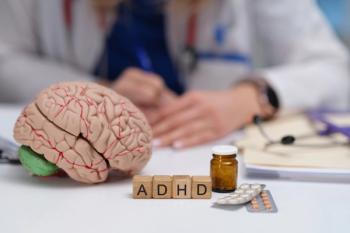
What Are Common Comorbidities in ADHD?
In this expert Q&A, Julie Sherman, PhD and Jay Tarnow, MD briefly discuss the latest research findings on ADHD.
In this expert Q&A, Julie Sherman, PhD and Jay Tarnow, MD briefly discuss the latest research findings on ADHD and answer the question, “What are common comorbidities in ADHD?”
Answer: ADHD is diagnosed in 3% to 5% of the US population.1 The risk for comorbidity with other disorders is high, and the presence of comorbid disorders warrants special consideration in the treatment of patients with this disorder. For example, a comorbid diagnosis of ADHD and depression occurs in approximately 20% to 30% of patients, and ADHD and anxiety in over 25% of patients.1
These comorbidity rates are equally or more prevalent in adults as they are in children, but very few studies have examined these patterns over time in adults. In a longitudinal study,
Some researchers propose that bipolar disorder (BD) and ADHD together should form a separate clinical phenotype of BD.
ADHD is also associated with abnormalities in the frontal lobes. It makes sense that any neurological disorder originating in these regions would increase the risk for ADHD. Zhang and colleagues3 evaluated children with frontal lobe epilepsy for the prevalence of ADHD. Results found that 89.4% of children with abnormal electroencephalography (EEG) readings had a co-occurrence of ADHD, compared with only 25% of children with normal EEG readings. The authors concluded that frontal lobe epilepsy is strongly linked to the occurrence of ADHD, and this occurrence is even greater for individuals with an abnormal EEG.
It is important to treat all comorbidities to maximize treatment. Because individuals with comorbid psychiatric disorders experience greater cognitive, social, and psychological impairments, mental health professionals are encouraged to screen for early detection and intervention.
References:
References:
1.
Michielsen M, Comijs HC, Semeijn EJ, et al.
The comorbidity of anxiety and depressive symptoms in older adults with attention-deficit/hyperactivity disorder: A longitudinal study
.
J Affect Disord.
2013;148:220-227
2.
Perugi G, Ceraudo G, Vannucchi G, et al.
Attention deficit/hyperactivity disorder symptoms in Italian bipolar adult patients: a preliminary report
.
J Affect Disord.
2013;149:430-434.
3.
Zhang DQ, Li FH, Zhu XB, Sun RP. Clinical observations on attention-deficit hyperactivity disorder (ADHD) in children with frontal lobe epilepsy.
J Child Neurol.
2012 Dec 26. [Epub ahead of print].
Newsletter
Access practical, evidence-based guidance to support better care for our youngest patients. Join our email list for the latest clinical updates.








